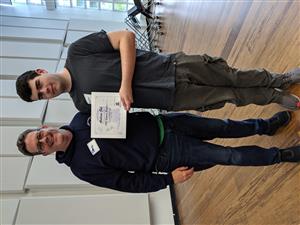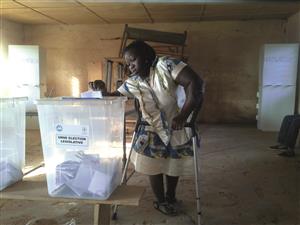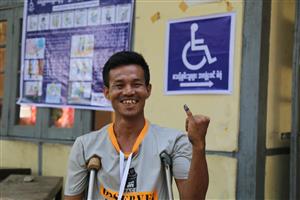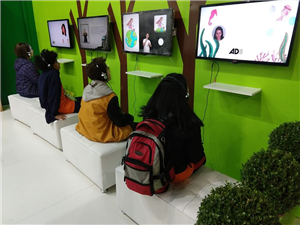Search Results
Search
Filter results
Advanced Filters
Your search returned 279 Solutions
-

Department testing innovative approaches towards more inclusive careers for students
Since 2014, the Pathways to Careers (PTC) model has been testing different approaches to improve the qualifications and professional advancement of students with disabilities. Approaches such as Universal Design for Learning (UDL) or student learning contracts with companies have already proven successful.
Department of Labor of the US, Pathways to Careers Programme (PTC), United States of America -
Multinational IT-manufacturer developing an accessible hiring and workplace programme
Flex Zhuhai is the Chinese subsidiary of Flex Ltd, a leading electronics contract manufacturer. In 2015, Flex Zhuhai implemented an accessibility programme, including accessible hiring practices and an internship programme. By 2021 the number of employees with disabilities had increased from 13 to more than 200.
Flex Ltd., Barrier free programme, China -

An Inclusive Election Guide developed in a Sub-Saharan Country
In the run-up to the 2015 elections in Burkina Faso, Light for the World facilitated solutions that removed barriers for persons with disabilities regarding political participation. An inclusive election guide was developed, ballots were printed in Braille, and legislative bodies hired people with disabilities to ensure equality.
Light for The World Burkina Faso, Inclusive Election Guide, Burkina Faso -

A step-by-step toolkit to monitor voter participation
IFES developed a methodology whereby people with disabilities and their organizations are trained as official observers and use checklists to collect data on access to the electoral process. As of 2018, 13 countries had employed the IFES’s methodology, resulting in the formation of a free-to-download Election Access Observation Toolkit.
IFES - International Foundation for Electoral Systems, Election Access Observation Toolkit, Indonesia -
Independent and secret voting for all
The Federation of Portuguese Cerebral Palsy Associations (FAPPC), together with IBM and Softinsa, has developed a voting system that uses different input devices to enable independent and secret voting for everyone, including people with motor, sensory, and intellectual disabilities.
FAPPC - Portuguese Federation of Associations for Cerebral Palsy, Accessible Vote System, Portugal -
Government research institute promoting sign language in science, technology, engineering, and mathematics
Indian Sign Language Enabled Virtual Laboratory by CSIR, India: Enhances STEM learning accessibility for the deaf with comics, games and simulations. Around 250 content videos and 100+ vocabulary videos were added in 2022 alone.
Indian Sign Language Enabled Virtual Laboratory (ISLEVL), India -
easy entrance develops workable, realistic and cost-efficient solutions that enable companies and organisations to create accessible work environments. Sustainable solutions are jointly developed on the conceptual basis of 'accessibility' and 'design for all'.
easy entrance develops workable, realistic and cost-efficient solutions for companies and organisations to improve accessibility. As a business consultancy and technical architecture company, easy entrance offers services for the entire process from conception through planning to implementation.
Easy Entrance GmbH, Consultancy for accessible working environments, Austria -

Audio-visual books in multiple accessible formats
"Livros em múltiplos formatos acessíveis" is an audio-visual software that converts books into a range of accessible formats, including Brazilian sign language, in a single version. Complementing this, the NGO Mais Diferenças from Brazil offers training and organizes inclusive readings for people with and without disabilities.
Mais Diferencas - Inclusive Education and Culture, Books in multiple accessible formats, Brazil -
Introduction of the personal assistance model
In 2016 the Phnom Penh Centre for Independent Living (PPCIL) introduced the first personal assistance model for people with severe disabilities in Cambodia. Between 2016 and 2018, more than 300 people with disabilities have benefitted from the PPCI programme, , which is to become a national policy.
Phnom Penh Center for Independent Living, Cambodia -
An app reviewing the accessibility of locations by user’s “yes” and “no”
Access Earth discovered that a simple yes or no answer provides much more clarity than an elaborate three-star rating. One of the main focuses of the website and the app is to create an element of ease in the rating process. This allows users to make a quick, yet valuable, rating of a venue with the option to add any comments.
Access Earth, Ireland